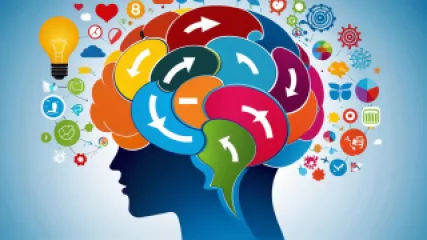Unraveling Intelligence Theories: What are the most effective intelligence improvement techniques?
Introduction
Intelligence is a fascinating and complex concept that has been the subject of study and debate for centuries. Over time, various theories have emerged to explain the nature of intelligence and how it can be measured and improved. In this article, we will delve into the realm of cognitive theories of intelligence, explore the concept of emotional intelligence, discuss learning styles theory, and ultimately uncover the most effective techniques for improving intelligence.
Cognitive Theories of Intelligence
Cognitive theories of intelligence focus on understanding the mental processes involved in intelligent behavior. One prominent theory is the psychometric approach, which views intelligence as a measurable trait that can be quantified through standardized tests. This approach emphasizes factors such as logical reasoning, problem-solving abilities, and verbal and mathematical aptitude.
Another influential theory is the multiple intelligences theory proposed by Howard Gardner. According to this theory, intelligence is not a single entity but rather a combination of different types of intelligences, including linguistic, logical-mathematical, spatial, musical, bodily-kinesthetic, interpersonal, intrapersonal, and naturalistic intelligences.
Furthermore, the triarchic theory of intelligence developed by Robert Sternberg posits that intelligence consists of three components: analytical intelligence (problem-solving and logical reasoning), creative intelligence (generating novel ideas and thinking outside the box), and practical intelligence (applying knowledge to real-world situations).
Emotional Intelligence Theory
While cognitive theories of intelligence primarily focus on intellectual abilities, the concept of emotional intelligence recognizes the importance of emotions in the realm of intelligence. Emotional intelligence refers to the ability to perceive, understand, manage, and use emotions effectively.
The four-branch model of emotional intelligence proposed by Mayer and Salovey encompasses four interconnected areas: perceiving emotions (recognizing emotions in oneself and others), using emotions (utilizing emotions to facilitate thinking and problem-solving), understanding emotions (comprehending complex emotional states), and managing emotions (regulating and responding to emotions appropriately).
Emotional intelligence theory highlights the significance of social and emotional skills in various aspects of life, including interpersonal relationships, communication, leadership, and decision-making.
Learning Styles Theory
Learning styles theory suggests that individuals have different preferences and approaches to learning. While there are various models of learning styles, one well-known framework is the VARK model proposed by Neil Fleming. VARK stands for visual, auditory, reading/writing, and kinesthetic, representing four different sensory modalities through which individuals acquire and process information.
According to the VARK model, some individuals may prefer visual learning, relying on images, diagrams, and charts to understand concepts. Others may have an auditory preference, benefiting from listening to lectures or engaging in discussions. Reading/writing learners thrive when information is presented in written form, while kinesthetic learners prefer hands-on experiences and physical activities.
While learning styles theory has garnered attention and influenced educational practices, it is important to note that evidence supporting the effectiveness of tailoring instruction to individual learning styles is limited. The emphasis should be on providing diverse learning opportunities and utilizing a combination of strategies to accommodate different preferences.
Intelligence Coaching
Intelligence coaching involves working with individuals to enhance their cognitive abilities and reach their full intellectual potential. Coaches utilize various techniques and strategies to improve critical thinking, problem-solving, memory, creativity, and other aspects of intelligence.
Cognitive training is a common approach used in intelligence coaching. It involves engaging in activities and exercises that challenge and stimulate cognitive processes, such as memory games, puzzles, and mental arithmetic. Cognitive training aims to improve cognitive functioning and enhance overall intelligence.
Mindfulness training is another technique employed in intelligence coaching. Mindfulness practices, such as meditation and focused attention exercises, can enhance attentional control, reduce stress, and promote cognitive flexibility and emotional well-being. These benefits can ultimately contribute to improved intelligence.
Metacognitive strategies play a crucial role in intelligence coaching. Metacognition refers to the awareness and regulation of one's own thinking processes. By teaching individuals how to plan, monitor, and evaluate their thinking, coaches help them become more effective learners and problem solvers.
Intelligence Improvement Techniques
Now that we have explored various intelligence theories and coaching approaches, let's delve into some effective techniques for improving intelligence:
- Engage in lifelong learning: Continuously seeking new knowledge and skills through reading, attending courses, or pursuing hobbies can expand your intellectual horizons and enhance your cognitive abilities.
- Challenge your brain: Engage in activities that require mental effort and novelty, such as puzzles, riddles, crosswords, and other intellectually stimulating tasks.
- Practice critical thinking: Develop your ability to analyze information critically, evaluate evidence, and make reasoned judgments. Engage in debates, discuss complex topics, and seek different perspectives.
- Cultivate curiosity: Maintain a curious mindset and actively seek out new experiences and knowledge. Curiosity fuels intellectual growth and encourages exploration.
- Embrace failure and learn from it: Don't be afraid to make mistakes or encounter setbacks. View them as opportunities for growth and learning.
- Engage in regular physical exercise: Physical activity has been linked to improved cognitive function, memory, and overall brain health.
- Get enough sleep: Adequate sleep is essential for optimal cognitive functioning, memory consolidation, and learning.
- Practice mindfulness: Engaging in mindfulness practices can enhance attention, reduce stress, and promote emotional well-being, all of which contribute to improved intelligence.
Conclusion
Unraveling the complexities of intelligence theories has shed light on the multifaceted nature of human intelligence. From cognitive theories that explore mental processes to emotional intelligence theory that recognizes the role of emotions, our understanding of intelligence continues to evolve.
While learning styles theory provides insights into individual preferences, evidence supporting its efficacy remains limited. However, intelligence coaching offers promising avenues for improving cognitive abilities through techniques such as cognitive training, mindfulness practices, and metacognitive strategies.
Ultimately, improving intelligence is a lifelong journey that involves engaging in continuous learning, challenging the mind, practicing critical thinking, nurturing curiosity, embracing failure, prioritizing physical and mental well-being, and cultivating mindfulness. By incorporating these techniques into our lives, we can unlock our full intellectual potential and embark on a path of intellectual growth and fulfillment.






